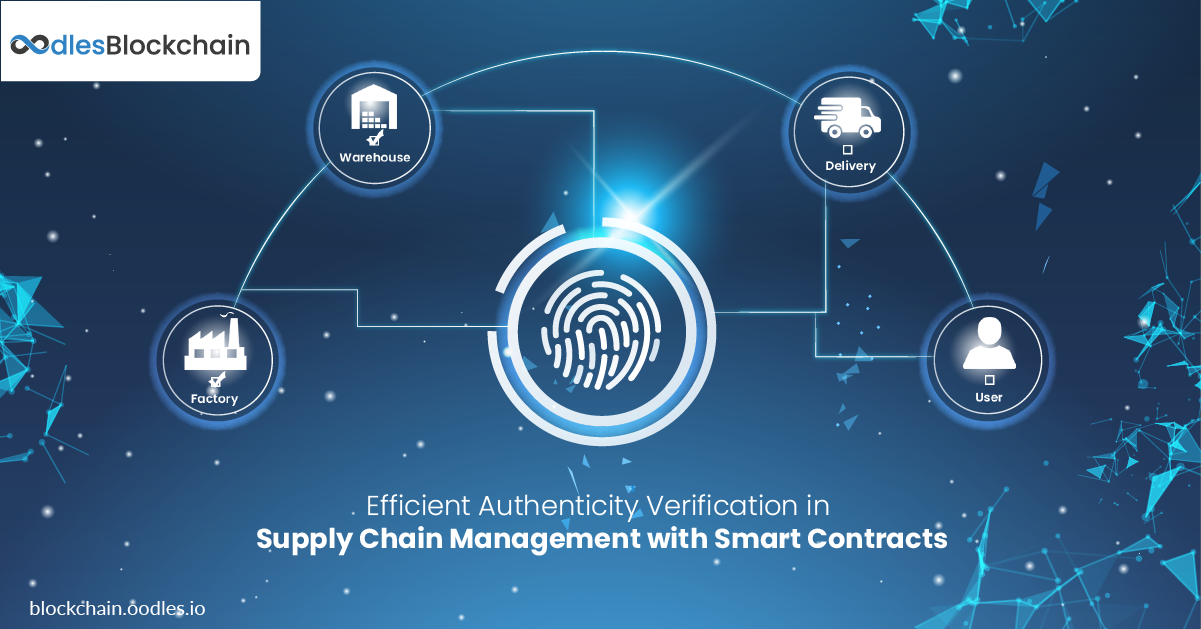-
This article entails how businesses can use blockchain application development to improve authenticity verification in supply chain management.
Authenticity Verification Challenges
A product authentication solution enables each stakeholder in a supply chain to authenticate products easily and securely. It improves distribution channel integrity to provide end-to-end protection against counterfeit products. However, conventional solutions for product authentication are unable to provide efficient protection against fraudulent activities. The International Chamber of Commerce (ICC) found that pirated products will drain $4.2 trillion from the global economy by 2022. Manufacturers and suppliers need to find a sustainable solution for product authentication to address counterfeiting challenges. Blockchain application development can provide solutions that efficiently authenticate products in the supply chain. Enterprises face the following three major challenges with conventional product authentication solutions:
- They provide inadequate security if they are easy to use and economical
- If they are robust then they require a high level of technical expertise and dedicated hardware to operate
- It is difficult to integrate them with enterprise solutions
Technologies like QR codes, 2D codes, and serial numbers are simple and cost-effective. However, it is easy to copy and use the codes and numbers for producing counterfeit products. Hologram provides covert authentication, but it is useful only for experts. Copycats can trick non-experts easily by creating holograms that are not easy to detect as fake. Several covert security features like security ink and taggants require trained professionals and expensive hardware to verify authenticity. Technologies like RFID (radio frequency identification) tags have emerged as standard logistic solutions with sophisticated capabilities. But, the high cost and lack of a common platform for mobile verification inhibit the widespread use of RFID tags. The supply chain management industry is struggling with inadequate resources for efficient authenticity verification. It has solutions that are either easy to use but insecure or secure but uneconomical. Blockchain technology and smart contracts can overcome such conventional limitations to authenticate products in an easy, economical, and secure manner. Read About Smart Contract Solutions for On-Demand Car Insurance
Overcoming Authenticity Verification Challenges with Blockchain
Blockchain supply chain management solutions can enable stakeholders to overcome the challenges of data transfer, ownership verification, and privacy. The technology enables provenance validation with greater certainty by simplifying the process of data transfer and transaction reconciliations. Blockchain and distributed ledgers store immutable records of products like quantity, location, and movement to secure each piece of information. Additionally, it is possible to create verifiable information with smart contracts to enhance data transparency for the benefit of all stakeholders. Initial data accuracy is an important factor in supply chain management (SCM). Blockchain requires accurate initial data on the product to counter the issues of fraud and inaccurate labeling. The capability of blockchain to store immutable records of every transaction is the basis of efficient authenticity verification in SCM. A blockchain can maintain chronological records of transactions for easy identification of fraudulent or erroneous activities. It stores the records of transactions by encoding them cryptographically. Replication of data on the entire network makes the record available for any supply chain participant. The technology establishes trust in multiple data sources by providing visibility over the origin of the data related to a product. Every product possesses a unique serial number or code for identification. It is possible to store such information on the blockchain as initial data or product ID. Third-party services such as logistics will warrant the addition of unique hash data into the product id on the blockchain. Stakeholders on the supply chain like distributors and retailers add unique hash data to the product ID successively. It is possible to track the transaction history and product movement by tracking the hash data on the blockchain. It simplifies the process of tracking the provenance details of the product. The hash data and product ID are immutable and each transaction has a record on the blockchain. It effectively strengthens anti-counterfeit measures. It is also possible for consumers to verify product authenticity with the initial identifier or product id. Check It Out | NFT‑Based Loyalty Programs Explained
Our Blockchain Development Services
We offer blockchain application development using platforms like Ethereum and Hyperledger Fabric. We program smart contracts for adding cryptographic hash data essential for verifying products. Our developers customize the proof-of-work (PoW) algorithm to develop a proof-of-stake (PoS) consensus algorithm for enabling better scalability of the DApp. We can also develop delegated proof-of-stake (DPoS) or practical Byzantine fault tolerance (PBFT) consensus algorithms to fulfill multiple supply chain requirements. Hyperledger Fabric enables the development of a modular platform that supports the operations of private consortium networks like the supply chain. Every supply chain has industry-specific requirements. We evaluate several blockchain technologies to fulfill the supply chain requirements of a variety of products. Our subject matter experts assess your business requirements to develop a holistic solution. Contact our skilled developers to create blockchain platforms that improve the efficiency of supply chain operations while improving authenticity verification processes.

Our Offices
INDIA
Emaar Digital Greens, Sector 61,
Gurugram, Haryana
122011.
Welldone Tech Park,
Sector 48, Sohna road,
Gurugram, Haryana
122018.














